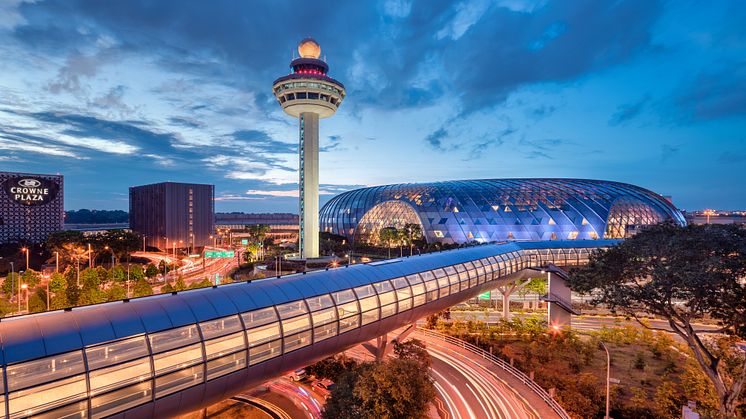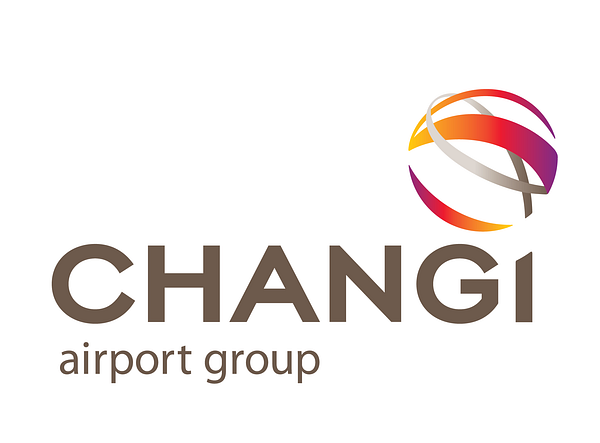
Press release -
Changi Airport Group (Singapore) Pte. Ltd. and its subsidiaries results for the year ended 31 March 2021 (FY2020/21)
The following table sets out the summary consolidated Profit and Loss statement of the Group
S$’million) | FY2020/21 | FY2019/20 |
Change (%) |
Profit & Loss | |||
Total revenue | 697 | 3,119 | -78% |
Total expenses | 1,433 | 2,252 | -36% |
EBITDA[1] | 178 | 1,637 | -89% |
(Loss)/Profit attributable to shareholder of the Company | (954) | 438 | -318% |
Financial Position | 31 March 2021 | 31 March 2020 |
Change (%) |
Assets | 15,301 | 15,948 | -4% |
Liabilities | 8,469 | 7,818 | 8% |
Cash and marketable securities | 1,815 | 2,528 | -28% |
Loans and borrowings | 1,837 | 1,803 | 2% |
Equity attributable to shareholder of the Company | 6,916 | 7,887 | -12% |
[1] EBITDA (Earnings before interest, taxes, depreciation and amortisation) include a portion of “Other income and losses-net” amounting to S$218 million (FY2019/20: S$40 million) relating to Covid-19 grants and reliefs received from the Singapore and Brazilian government authorities.
Group Operating Revenue
Global travel restrictions resulting from the Covid-19 pandemic adversely impacted the performance of Changi Airport Group (Singapore) Pte Ltd (CAG) and its subsidiaries (the Group). Both Changi Airport as well as Tom Jobim International Airport in Rio de Janeiro, Brazil, a 51% owned subsidiary of the Group, saw significant declines in passenger traffic movements of 98% and 83%, respectively. Some airports in the Group’s overseas portfolio in Russia and China were less impacted due to strong rebound in domestic passenger traffic. Jewel Changi Airport (Jewel), a joint venture between CAG and CapitaLand, saw lower footfall as visitor numbers plummeted after the onset of the Covid-19 pandemic. The Group’s revenue declined by 78% to S$697 million in FY2020/21, mitigated slightly by higher revenue from the cargo segment and efforts to grow e-commerce and other new revenue streams.
Group Operating Expenses
Excluding depreciation and amortisation charges of S$696 million in FY2020/21, the Group’s operating expenses fell by 52% to S$737 million after stringent cost-cutting measures and support from government.
At Changi Airport, operations in two of the four terminals have been suspended since May 2020. Service contracts were extensively renegotiated to commensurate with lower passenger traffic. These measures, coupled with a company-wide salary reduction and hiring freeze, and support from government, enabled Changi Airport to reduce its operating expenses by about 56%. Partial closure of terminal areas in Tom Jobim International Airport was also implemented to reduce outsourced services and utilities.
EBITDA and net loss
With stringent cost cutting measures and strong support from government authorities through various forms of Covid-19 reliefs and waivers, the Group achieved a positive EBITDA of S$178 million in FY2020/21.
Notwithstanding the impact of Covid-19, some assets in Changi Airports International’s (CAI) current overseas portfolio in Russia and China had outperformed expectations and remained profitable due to strong rebound in domestic passenger traffic in the second half of 2020, recovering to almost pre-Covid levels.
Overall, the Group recorded a net loss attributable to shareholder of the Company (or net loss) of S$954 million, driven by weaker performance due to the Covid-19 pandemic as well as non-cash impairment and depreciation charges.
With passenger movements significantly reduced arising from the Covid-19 pandemic, Tom Jobim Airport’s operations and results had been adversely impacted. Due to the prolonged impact of Covid-19 outbreak and delayed recovery in air traffic, an independent consultant was commissioned to perform an impairment assessment on Tom Jobim Airport. Based on the assessment, a non-cash impairment charge of S$442 million was recorded for FY20/21, of which the Group’s 51% share was S$225 million.
Financial Position
As at 31 March 2021, total equity attributable to shareholder of the Company was S$6.9 billion, reflecting a decline of 12% due to the impact of the Covid-19 outbreak.
The various cost-cutting measures undertaken by the Group, coupled with the strong support from government authorities, have helped the Group reduce its cash burn. As at 31 March 2021, the Group’s liquidity position remained healthy at S$1.82 billion.
To further strengthen its liquidity position, subsequent to 31 March 2021, CAG raised S$500 million through a 10-year bond issuance priced at 1.88% per annum on 4 May 2021. A revolving credit facility of S$2 billion was also secured to serve as a standby source of liquidity.
Remarks by Chairman & CEO
Mr Tan Gee Paw, Chairman of CAG, said: “This has been the most difficult time in Changi Airport’s history. The enormous turbulence brought about by the global Covid-19 pandemic has decimated Changi’s air traffic and severely jolted the airport’s operations and future development plans. Our global business, through our subsidiary CAI, was also not spared from the global impact of the pandemic, with its key investment in Brazil’s Tom Jobim International airport continuing to face challenging market conditions.
“Yet, the Group holds fast to its mission of ensuring that Changi Airport continues to connect Singapore to the rest of the world. Our priority remains to protect the well-being of airport workers, as well as the safety of passengers and visitors. We do this without losing sight of our responsibility to preserve the status of the Changi air hub, a critical lifeline of the Singapore economy.
“This means daring to allocate the necessary resources to maintain high standards of hygiene and safety in Changi at all times, and to adopt new ways of working to achieve operational and cost efficiencies for long-term sustainability. We are confident that CAG will be able to rise from its current setback, with the right measures in place to prepare for recovery.
“We are deeply appreciative of the strong support we have received from the government and our shareholder. We thank our airport partners for their resolute partnership, and every member of the Changi community for bravely facing daunting challenges, with positivity and resilience, as we all strive to continue delivering the best for our stakeholders.”
Mr Lee Seow Hiang, CEO of CAG, said, “Covid-19 looks set to remain for some time as the virus continues to evolve and evade control. Despite the very low passenger traffic of just 2% pre-Covid level, Changi Airport managed to achieve positive EBITDA in FY2020/21. This would not have been possible without support from the Singapore government, and prompt implementation of stringent cost cutting measures to minimise cash burn.
“While air travel demand is not expected to return to pre-Covid levels any time soon, we are certainly not at a standstill. Instead, CAG is working with the airport community to put in every effort possible to transform our airport operations and concessions business to meet the travel demands of a Covid-19 new normal.
“Although passenger traffic at Changi remains low, we have witnessed strong recovery in air cargo throughput. In April 2021, airfreight passing through Changi had risen to 99% of what it was two years ago. Despite the pandemic, Changi Airport welcomed four new airfreight carriers during the last 15 months and it continues to play a critical role in supporting global supply chains and ensuring that supplies to Singapore remain uninterrupted.
“Overseas, CAI continued to face operating challenges exacerbated by Covid-19. To maintain a stronger cash position, CAI moved towards an asset-light business model, pursuing longer term operations and management projects, as well as commercial joint ventures. During the year, CAI clinched a five-year commercial partnership with Guangzhou Baiyun International Airport and several new contracts in China. It also continued to adopt a disciplined approach to its expansion and assess projects on risk-adjusted returns.
“On home ground, we have been working closely with the Singapore government to jumpstart air traffic by enabling transfers at Changi and facilitating reciprocal green lanes and unilateral openings. As countries across the globe step up on vaccinations, and with emerging testing technologies promising to be more affordable and delivering faster results, there is good reason to believe that travel will resume in a matter of time. When that happens, Changi Airport will be ready to give passengers the confidence to fly again.”
Categories
About Changi Airport Group
Changi Airport Group (Singapore) Pte Ltd (CAG) (www.changiairportgroup.com) was formed on 16 June 2009 and the corporatisation of Singapore Changi Airport (IATA: SIN, ICAO: WSSS) followed on 1 July 2009. As the company managing Changi Airport, CAG undertakes key functions focusing on airport operations and management, air hub development, commercial activities and airport emergency services. CAG also manages Seletar Airport (IATA: XSP, ICAO: WSSL) and through its subsidiary Changi Airports International, invests in and manages foreign airports.
